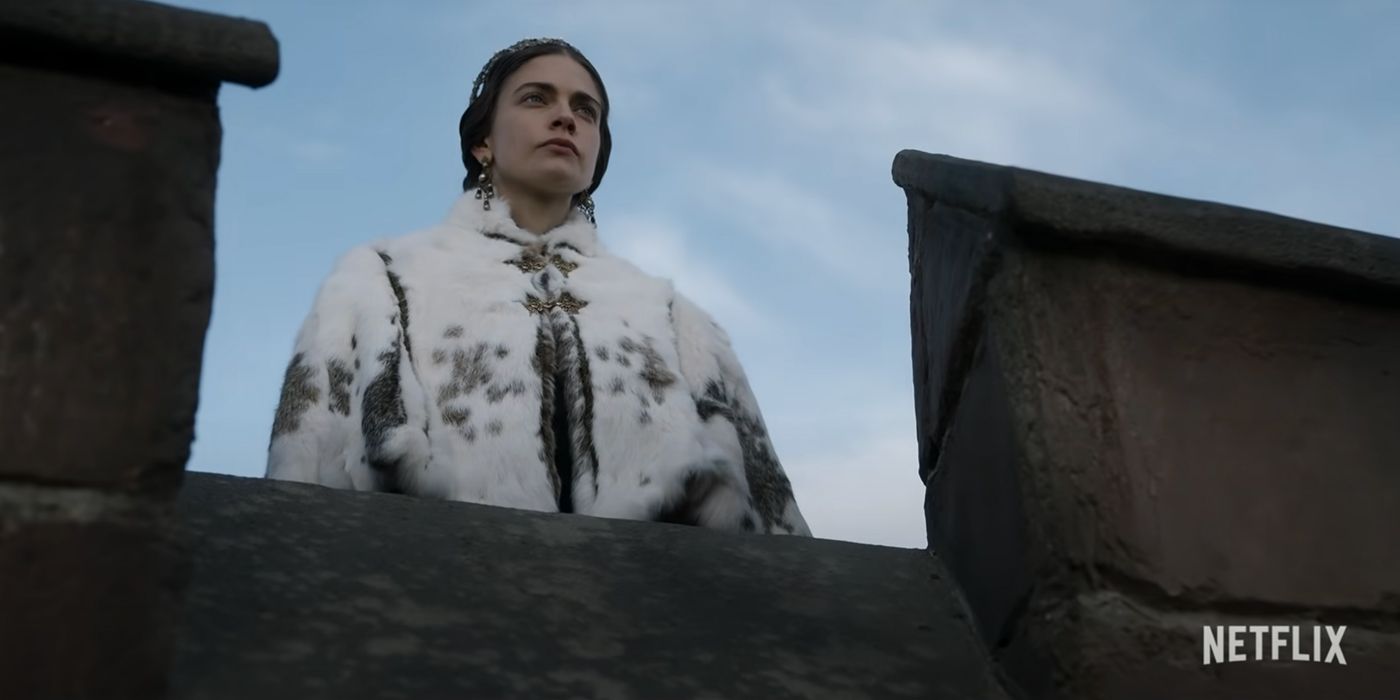Potential spoilers for Vikings: Valhalla
One of the most gripping elements of the original Vikings show was knowing that the unfolding action and drama was somewhat based on historical events, however, the new spinoff show, Vikings: Valhalla, sets up a heartbreaking end. Vikings told viewers the story of the Vikings’ rise to prominence, particularly in England, but other parts of Europe as well, making for an expansive and dramatic story of conquest and settling. With Valhalla currently set to take place 100 years after the ending of the original show, viewers will no longer be set to watch the dawn of the Viking Age, but its waning hours.
While Vikings often changed the real history to suit the narrative direction of the show, the set appearance of characters such as Canute “The Great” indicates a narrative story that will most likely be heart-wrenching for the viewers. The intensity of Vikings was a result of never truly knowing what battles would be won by who, and what political gambits would succeed. That level of intensity is likely to be removed in the up-and-coming spin-off, traded for an undoubtedly more somber mood.
With Vikings: Valhalla set to shed a light on the dwindling days of Viking supremacy, viewers are ultimately burdened with the knowledge that any success is doomed to unfold before long. The final years of the age of the Vikings are marked by military defeats, retreating Kingdom boundaries, and the rise of Christianity to replace the pagan Norse religion. The showrunners are undoubtedly aware of this, with the title Valhalla having a deeper meaning, no doubt reflecting the impending loss of empires, religion, and even life.

It’s unconfirmed exactly how far along the historical timeline Vikings: Valhalla will take viewers, and plenty of the stories bound to be told are ones of great success and importance, despite their historically heartbreaking endings. With real-life characters such as Leif Erikson and Canute The Great set to appear in the show, their successes as well as failures are bound to be told. Leif’s historical accomplishments are no small feat, being the first European to discover the Americas, centuries before it would be done again, and Canute’s North Sea Empire, however brief, was practically unmatched in power.
These successes, however exciting, were unfortunately not enough, and it is ultimately inevitable that heartbreak is just around the corner, especially if the show takes the viewers all the way to 1066. Valhalla could even show the battle that ends the Viking age at Stamford Bridge, since the leader of the Viking army Harald Sigurdsson, better known as Harald Hardrada, is also set to appear in the show. It would be a heartbreaking yet bittersweet send-off to the Viking age for the show, and true to the emotions the title Valhalla invokes, glory in death, a send-off true to the Viking way.
This final Viking defeat may be even more heartbreaking than anticipated, considering the battles of 1066 would conclude with William of Normandy the victor. William of Normandy, perhaps better known as William the Conqueror, was a descendent of the Viking-turned Norman Rollo, who was a main character in the original show. This is a subtle way of bridging Valhalla to the original show through Rollo’s real-life history and twists his treacherous dagger a bit deeper into the hearts of Vikings‘ viewers. Ultimately, no matter how great the victories in Vikings: Valhalla, its impressive cast and historical timeline ultimately set up a heartbreaking end for its Viking protagonists.
Vikings: Valhalla is set to release on February 25th on Netflix.




